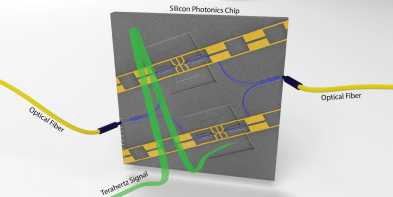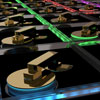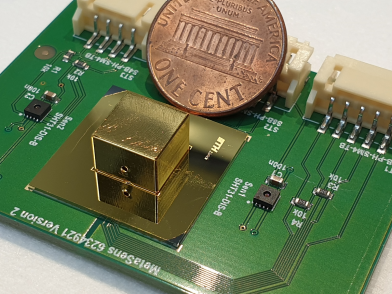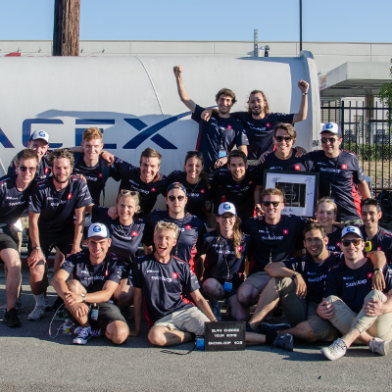IEF News 2019
Terahertz Waves Go Nano

In a joint collaboration Juerg Leuthold (D-ITET) and Jerome Faist (D-PHYS), together with Larry Dalton from the University of Washington, Department of Chemistry, Seattle, USA, show a terahertz detector on a silicon chip in Nature Communications. The two lead authors of the paper, Yannick Salamin (D-ITET) and Ileana-Cristina Benea-Chelmus (D-PHYS) see in this demonstration an enormous potential for future ultrasensitive broadband spectroscopy and telecommunication.
A super-fast “light switch” for future cars and computers

Switching light beams quickly is important in many technological applications. Researchers at ETH have now developed an “electro-opto-mechanical” switch for light beams that is considerably smaller and faster than current models. This is relevant for applications such as self-driving cars and optical quantum technologies.
Plasmonic modulators enable unprecedented transmitter performance for future data centers
Researchers of the Institute of Electromagnetic Fields (IEF) at ETH Zürich and collaborators presented new solutions for intra-datacenter communication enabled by plasmonic modulators. In two post-deadline contributions at the 45th European Conference on Optical Communication (ECOC 2019), plasmonic modulators enabled the first monolithic transmitter operating beyond 100 GBd and a world-record performance of 222 GBd in a short-reach transmission scenario.
Best Paper Award for Alexander Lochbaum

Our institute member Alexander Lochbaum is the winner of the Emil Wolf Outstanding Student Paper Competition at the OSA Annual Meeting
Joint research and development of D-ITET and Swissloop results in award winning linear induction motor

For his Master’s thesis Christopher Timperio developed a high-speed linear induction motor, supervised by Jasmin Smajic from the Institute of Electromagnetic Fields (IEF). With Smajic’s advice, Swissloop’s Nicolas Marchal and Samuel Sadok built upon Christopher’s work and designed a new motor for the 2019 SpaceX Hyperloop pod competition in LA. Not only did the team achieve second place in the overall competition, the impressive new motor design also won them an innovation award from Elon Musk.